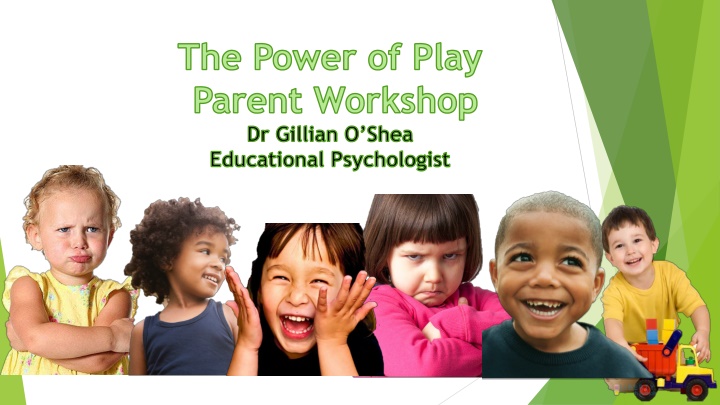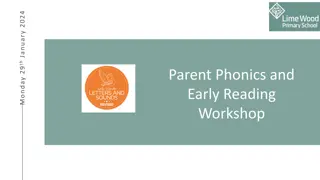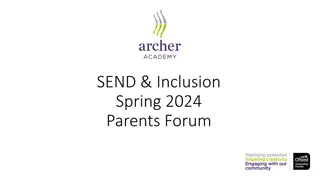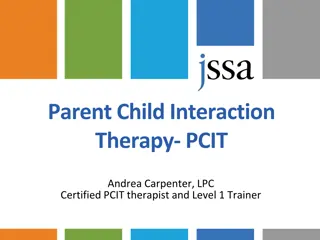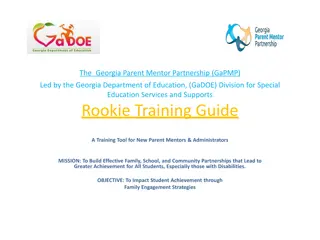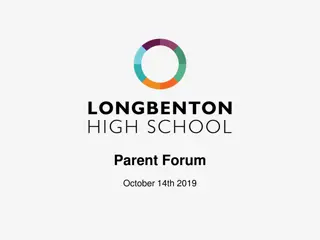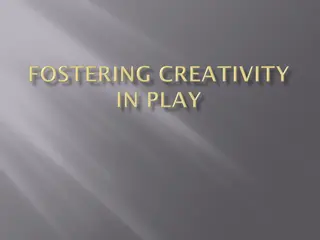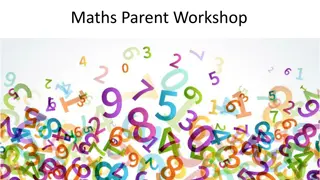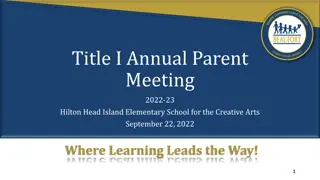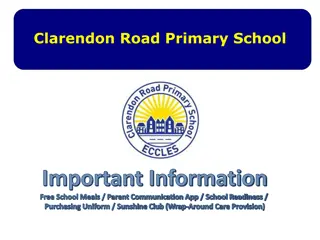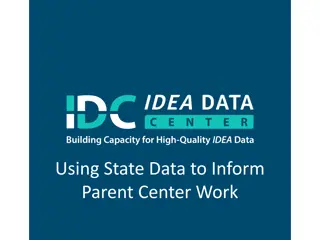The Power of Play Parent Workshop Dr Gillian O’Shea Educational Psychologist
Social and emotional wellbeing in children is nurtured through play, providing opportunities for self-awareness, confidence building, and resilience. Play allows children to express themselves, work through problems, and develop a sense of self, all while learning essential skills and gaining valuable experiences.
Download Presentation

Please find below an Image/Link to download the presentation.
The content on the website is provided AS IS for your information and personal use only. It may not be sold, licensed, or shared on other websites without obtaining consent from the author.If you encounter any issues during the download, it is possible that the publisher has removed the file from their server.
You are allowed to download the files provided on this website for personal or commercial use, subject to the condition that they are used lawfully. All files are the property of their respective owners.
The content on the website is provided AS IS for your information and personal use only. It may not be sold, licensed, or shared on other websites without obtaining consent from the author.
E N D
Presentation Transcript
The Power of Play Parent Workshop Dr Gillian O Shea Educational Psychologist
The power of play Social and emotional wellbeing comes from children feeling safe, secure and valued. The sense of wellbeing frees children to explore and learn. They learn ways to understand the world, knowing that they can get help and support when they need it. They gradually learn to identify and express their feelings and gain skills and understandings about relating to others. Much of what children learn about making relationships and managing emotions occurs through play.
Play helps children to increase their self-awareness, self-esteem, and self-respect improve and maintain their physical and mental health give them the opportunity to mix with other children allow them to increase their confidence through developing new skills promote their imagination, independence and creativity offer opportunities for children of all abilities and backgrounds to play together provide opportunities for developing social skills and learning build resilience through risk taking and challenge, problem solving, and dealing with new and novel situations provide opportunities to learn about their environment and the wider community.
Play and developing a sense of self Play provides opportunities for children to have power over what they do as well as what and how they learn. Children are reliant on caregivers and their lives are often organised around an adult s schedule. In play, children have more opportunity to make decisions. This is important for their developing sense of self as it builds feelings of self efficacy, competence and confidence.
Play is a way that children can work through and resolve problems Young children often do not have the language to really express their feelings but they can do it through play. As children grow and learn, their play becomes a way of expressing themselves. These ways of personal expression can help them to cope with feelings all their lives. For example, a child whose family has separated may feel very anxious about what is going to happen to them. These feelings and possibilities can be explored through play. The child can practise having two homes set-up with two houses and different dolls. The same applies to children who have moved house, as distance can be a difficult concept for young children to understand.
Partens categories of social participation Category Unoccupied Onlooker Solitary Parallel Description Child is not engaged in any activity Child is just watching others, not joining in Child plays alone, away from others Child plays near others at an activity, doing similar things e.g. playing independently at the sand tray Child interacts with others at an activity, doing similar things, e.g. each adding building blocks to the same tower Child interacts with others in complementary ways e.g. one child gets blocks and hands them to another child, who builds the tower Associative Cooperative
There are many different types of play. Can you think of any?
Types of Play Exploratory Play Importance The kind of play when children use their touch, smell and taste senses to explore and learn about the texture and function of the world around them. Children learn to take turns, cooperate with others and work on language development. Helps children learn about rules and turn-taking and how to function as part of a team. Develops language skills. This helps children develop gross (large movement) and fine (small movement) motor skills. Teaches children how to build, manipulate and fit things together. This helps develop their motor and cognitive skills. Pretend Play Competitive Play Physical/Active Play Constructive Play
Questions ? ? ?
